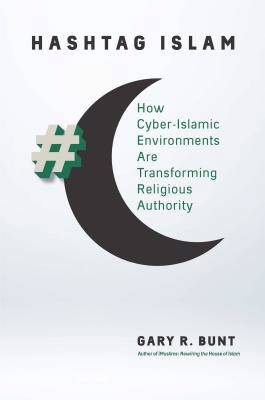
- Afhalen na 1 uur in een winkel met voorraad
- Gratis thuislevering in België vanaf € 30
- Ruim aanbod met 7 miljoen producten
- Afhalen na 1 uur in een winkel met voorraad
- Gratis thuislevering in België vanaf € 30
- Ruim aanbod met 7 miljoen producten
Zoeken
€ 42,95
+ 85 punten
Uitvoering
Omschrijving
Gary R. Bunt is a twenty-year pioneer in the study of cyber-Islamic environments (CIEs). In his new book, Bunt explores the diverse and surprising ways digital technology is shaping how Muslims across vast territories relate to religious authorities in fulfilling spiritual, mystical, and legalistic agendas. From social networks to websites, essential elements of religious practices and authority now have representation online. Muslims, embracing the immediacy and general accessibility of the internet, are increasingly turning to cyberspace for advice and answers to important religious questions. Online environments often challenge traditional models of authority, however. One result is the rise of digitally literate religious scholars and authorities whose influence and impact go beyond traditional boundaries of imams, mullahs, and shaikhs.
Bunt shows how online rhetoric and social media are being used to articulate religious faith by many different kinds of Muslim organizations and individuals, from Muslim comedians and women's rights advocates to jihad-oriented groups, such as the "Islamic State" and al-Qaeda, which now clearly rely on strategic digital media policies to augment and justify their authority and draw recruits. This book makes clear that understanding CIEs is crucial for the holistic interpretation of authority in contemporary Islam.
Bunt shows how online rhetoric and social media are being used to articulate religious faith by many different kinds of Muslim organizations and individuals, from Muslim comedians and women's rights advocates to jihad-oriented groups, such as the "Islamic State" and al-Qaeda, which now clearly rely on strategic digital media policies to augment and justify their authority and draw recruits. This book makes clear that understanding CIEs is crucial for the holistic interpretation of authority in contemporary Islam.
Specificaties
Betrokkenen
- Auteur(s):
- Uitgeverij:
Inhoud
- Aantal bladzijden:
- 232
- Taal:
- Engels
- Reeks:
Eigenschappen
- Productcode (EAN):
- 9781469643168
- Verschijningsdatum:
- 8/10/2018
- Uitvoering:
- Paperback
- Formaat:
- Trade paperback (VS)
- Afmetingen:
- 156 mm x 234 mm
- Gewicht:
- 362 g

Alleen bij Standaard Boekhandel
+ 85 punten op je klantenkaart van Standaard Boekhandel
Beoordelingen
We publiceren alleen reviews die voldoen aan de voorwaarden voor reviews. Bekijk onze voorwaarden voor reviews.











